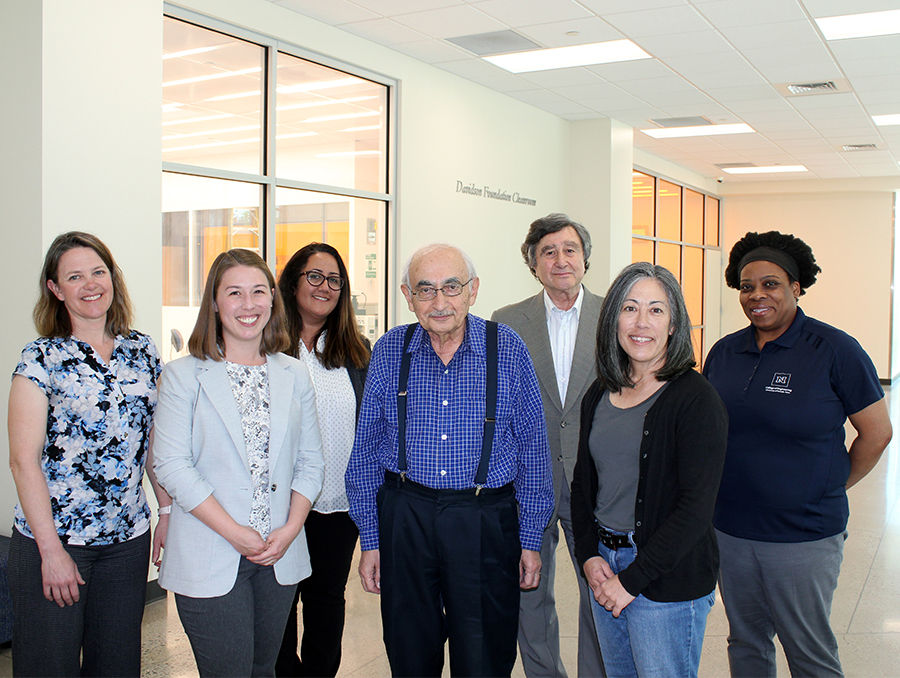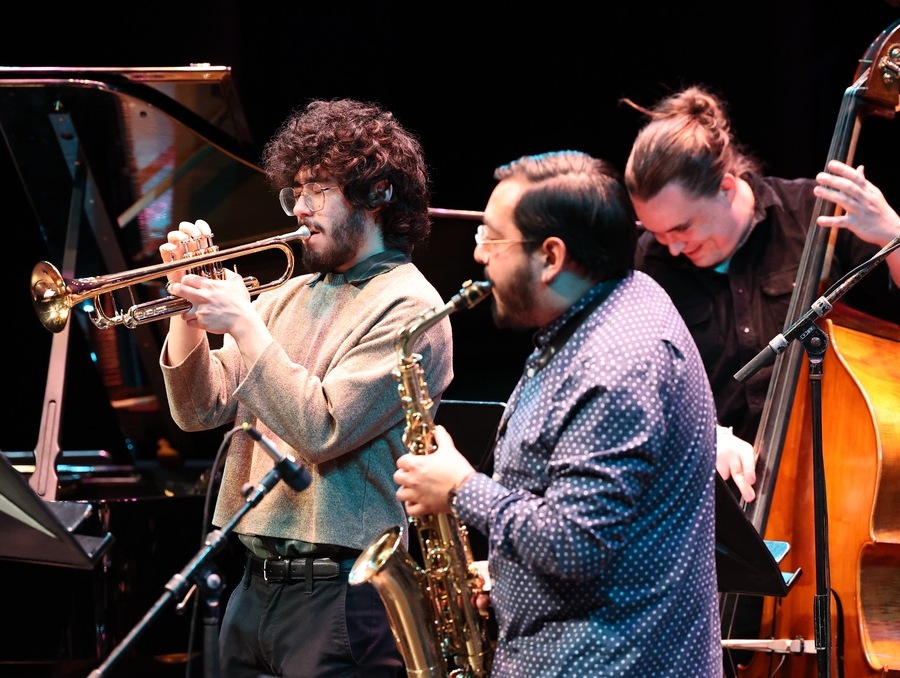The muffled chatter of parents, families and friends filled the Joe Crowley Student Union Ballrooms Monday night as they waited for the arrival of the soon-to-be graduates. The sound of celebratory cumbia filled the room, and the graduates filed in - some dancing, some striking a pose, all beaming with pride. For the first time in the University's history, The Center Every Student Every Story created an inclusive graduation ceremony for fall graduates.
In past years, cultural graduation celebrations were unique to the spring semester and split by Latino, Black, Asian Pacific Islander and Lavender (LGBTQIA+) ceremonies. Blane Harding, The Center's director, wanted to find a way to better incorporate all students into the University's fabric in the fall semester as well as in the spring.
"The Unity Celebration is a way for The Center and the University to express our appreciation of the contributions underrepresented students make to the University," Harding said. "We appreciate the fact that they're bringing in these different identities, experiences and new ways of doing things, while also educating other students, faculty and staff."
Though the Unity Celebration was a combined cultural graduation ceremony due to the smaller number of graduates in the fall, Harding believes that holding a combined celebration is an important step in understanding the intersectionality of identity and how students' identities shape their academic, social and work lives. Keeping with that theme, The Center was careful to select speakers, music and other programming that was culturally relevant and inclusive to everyone in the room in some way leading to the inclusion of a diverse cast of speakers, a performer and a Native American prayer.
Graduates and their guests were welcomed by words of empowerment by Albert Lee, assistant professor of voice and opera and director of vocal studies. Shortly thereafter, College of Liberal Arts Dean Debra Moddelmog gave a speech that departed from the traditional commencement fare. While she remained encouraging to graduates, the tenor of her speech was a call to action citing what she calls the four A's: ally, advocate, activist and alliance building as a means to engage students with their communities and help them find their places as initiators of change in those communities.
"Both students and faculty appreciated that the keynote address broke from the norm," Ricardo Salazar, program coordinator at The Center, said. "It wasn't necessarily all warm and fuzzy, and good feelings. There's the possibility that the difficult subjects she tackled could have made some students, and maybe even faculty, uncomfortable, but isn't that what we're here to do? We're here to challenge students, faculty and even family members who were there to step up to the plate and change their community."
Student speaker Devin Williams followed Moddelmog's rousing speech with a message of his own - this is just the beginning. According to Williams, an English literature major, the upcoming commencement should be a time of celebration, but also a time of action and defending the identities that make every student, faculty and staff member a unique addition to their community. Williams' sentiment echoed that of Lee's welcome address.
"As you receive your degrees, you sit at the intersection of the marginalized, the underprivileged, the underserved, the historically forgotten and the privileged," Lee said in his welcome. "A college degree is the entry level credential in our present day society. You have two choices: You can succumb to the allure of power and money that can come with privilege or you can use your position [to] advocate, uplift and educate. Do right because it's right."











